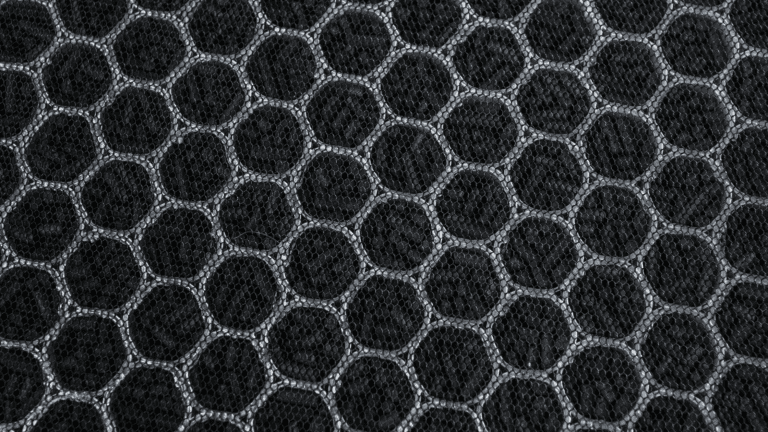 As the weather gets colder, many commercial cooling compressors in business buildings get a well-deserved break. The change of seasons means compressors don’t need to work as hard and are less likely to fail. Now’s a great time to make sure you are up-to-date on compressor maintenance.
As the weather gets colder, many commercial cooling compressors in business buildings get a well-deserved break. The change of seasons means compressors don’t need to work as hard and are less likely to fail. Now’s a great time to make sure you are up-to-date on compressor maintenance.
But indoor air quality remains a concern all year round, and the temperature is just one factor.
Even when your HVAC system is not as active, it is still doing a tremendous amount of work to protect your indoor air. The air filters throughout your ductwork serve as the first line of defense to trap irritants and pathogens, preventing them from circulating repetitively in your building.
As it turns out, this is a big job!
Indoor Air Can Be Up to Five Times More Polluted than Outdoor Air
Research by the EPA has shown that certain pollutants can be in much higher concentrations indoors than outside, making indoor air 2-5 times more polluted. Older buildings tend to experience more indoor air pollution than newer ones, due to narrower ducts and other construction issues.
Poor indoor air quality can develop into a serious problem over time. Allergens may be brought into a building and collect in small rooms with reduced ventilation. Irritants of many different kinds can reach concentrations high enough to aggravate pre-existing respiratory woes.
In the most serious cases, Sick Building Syndrome can develop. In Sick Building Syndrome, those who regularly spend time in a structure – employees, customers, or tenants – experience concerning symptoms that go away shortly after leaving the confines of the building.
It was once mysterious, but experts now agree that Sick Building Syndrome is not simply in the sufferers’ minds. Indoor air pollution has been put forward as one of the most likely explanations for the majority of cases. That makes sense when you consider just how many buildings have lackluster HVAC maintenance.
However, unless your HVAC system is less than ten years old, simple age is already affecting its efficiency on some level. To promote better air quality and support your other building systems, it’s wise to bring in a cost-effective solution to tackle air quality directly: Air purifiers.
Indoor Air Purifiers Can Remove Up to 99% of Common Indoor Air Pollutants
As attention has turned toward public health, many people have drawn the connection between air quality and their well-being. It is no surprise that from homeowners to business owners, more people are learning about what an air purifier can do for them.
An air purifier can be purchased as a standalone unit, widely available for residential use, or it can be attached directly to your commercial HVAC system. While almost all available air purifiers can reduce odors, smoke, dust, and pet dander, only a few can reliably capture pathogens like bacteria and viruses.
A standard air purifier consists of a number of fine filters and a fan that drives air intake. As air moves through the filter network, particles are captured. All heating and cooling systems have at least one built-in filter that must be cleaned or replaced on a regular basis, but a dedicated air filter adds more power.
Air purifiers come in a variety of sizes and can utilize different filtration technology. In general, though, a standalone air purifier unit will rapidly lose effectiveness depending on the square footage of the room and current level of air circulation. With that in mind, many facilities professionals choose built-in purifiers.
Using Air Purifiers to Eliminate Hazardous Pathogens in the Workplace
In and of itself, an air purifier is not intended to prevent or protect against any disease. However, purifiers are used as a key part of healthcare and eldercare environments. When you are looking for the most powerful on the market, it is prudent to start your search with HEPA air filters.
HEPA, High Efficiency Particulate Air, is a recognized standard for air purifiers representing the highest quality in the industry. HEPA purifiers incorporate specialized air filters that have the ability to remove more than 99% of all dust, pollen, mold, or bacteria coming in contact with the filter’s surface.
Specifically, a HEPA filter is rated with a “worst case” particle size of 0.3 microns. This is the specific type of particle that has an efficiency rating of 99.97%. Particles that are larger or smaller are captured in a HEPA filter with even higher levels of efficiency, although exact figures are not available for all cases.
Short-wave ultraviolet light can be used to further enhance filter performance.
Air purifiers are a powerful addition to your overall HVAC system. By improving air quality, they can add to morale and reduce critical factors that contribute to absenteeism. Built-in purifiers can cycle through the majority of a building’s air and have modest energy and maintenance requirements.












